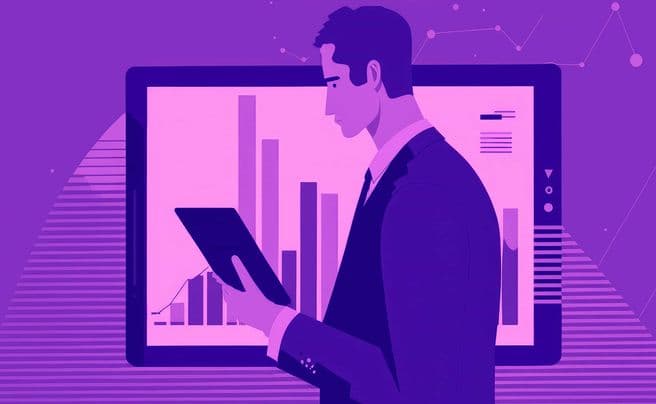Procurement and “the Contract Lifecycle”
73% of contract management processes are executed in silos
Today, procurement leaders are expected to drive the execution and management of contracts in collaboration with their internal stakeholders and suppliers. Increasingly, procurement teams are also expected to contribute to the vendor management lifecycle including a broad set of mandates, such as ESG, risk and performance requirements. This expanded set of responsibilities implicates contract construction and execution, but procurement teams spend more time searching for and reviewing contracts than working with strategic vendors to improve them. Are procurement teams positioned for success?
The majority of procurement professionals rely on contract data in spreadsheets, email, shared drives, and legacy CLM systems. In the context of managing the most strategic supplier contract renewals or negotiations, this manual approach unnecessarily introduces risk - do you have the right data to start with?
Approximately 80% of procurement cycle time is spent finding data, reviewing existing information and waiting on cross-functional input, review or approval
When we interact with procurement leaders, they report that they need real-time and reliable access to the following data to confidently negotiate with strategic suppliers.
Top Contract Visibility Data Points:
Contract dates, including renewal deadlines and negotiation periods
Total cost and spend commitments
Service level, quality and delivery commitments
Out clauses and associated penalties
Contract hierarchy - parent, child relationships between agreements
Top contingencies
Who “owns” the supplier relationship internally
Who was involved in the contract negotiation and execution from the supplier
Procurement leaders also report that their teams need to understand important aspects of the supplier lifecycle to form a full picture of the supplier relationship at the outset of negotiations.
Top Supplier Management Data Points
Organizational goals relating to suppliers
Internal satisfaction and sentiment with supplier
Updated risk assessments
Updated InfoSec documentation
Historical commit and spend data
Interaction log and meeting notes
Non-contract supplier documentation
90% of procurement leaders say current processes hinder them from addressing strategic priorities
Historically, procurement was a transactional function. When an organization needed to transact - it called on procurement. Today, procurement is transforming to a more strategic function with expanded responsibilities to meet new organizational demands across the supplier lifecycle.
However, procurement leaders find themselves battling the inefficiencies of manual processes across siloed applications. Each time a new initiative falls on procurement (i.e. cloud migration tracking, ESG implementation, supplier diversity, information security, services rationalization) it triggers a recurring organizational struggle with tedious legwork, manual process and complexity. This causes a backlog of procurement activities and a struggle to “keep up” versus a proactive, technology-driven approach, which promotes innovation and execution against top priorities.
78% of procurement leaders say that cross-functional collaboration is difficult
Procurement leaders are struggling to create the level of collaboration required to meet the rapidly expanding mandates they face. The widespread use of manual processes continues to force procurement to rely on email and excel as “patches” to create collaboration and “hack” data management. Other corporate functions, which have faced similar challenges, have attacked these challenges successfully using native cloud SaaS solutions.
 Terzo’s VRM Transforms Procurement
Terzo’s VRM Transforms Procurement
81% of procurement leaders say their teams don’t have the right tools
Organizations successfully transform when they implement platforms to standardize processes, centralize and curate organizational data, increase cross-functional collaboration and create visibility. Sales teams use CRMs to manage customers, finance teams use ERPs to manage operations, product and engineering teams use code repositories and collaboration tools to manage products.
It’s time for procurement teams to adopt a native-cloud platform designed to promote collaboration, expose critical data, and execute on the demanding expectations facing modern procurement. The future of procurement lies in how organizations take action on the insights rooted in contracts, vendor relationships, and spend even as they begin to consider new priorities like innovation, data security, ESG, and diversity.
Industry Use Cases Today
The emergence and adoption of the VRM has empowered organizations to realize transformation. Take a look at how VRM is transforming procurement across numerous industries, enabling automation, collaboration and data centralization. These improvements facilitate process fluidity by reducing tedious leg-work, data hunting and level-setting in favor of informed action and focus on strategic goals.
Innovation Procurement Cycle Transformation - A Fortune 100 FinServe CIO wanted to accelerate innovation to compete with nimble FinTech startups. To compete, the organization had to cut their innovation purchase cycle time dramatically. With Terzo VRM, the bank created no-code custom workflows to connect decision makers, driving cross-departmental collaboration and visibility. The bank cut procurement cycle time for innovation initiatives by 80%.
Eliminate Contract Renewal Misses - A pre-IPO software startup set a goal to completely eliminate missed contract renewals within 12 months. The company stored contract and vendor data in spreadsheets and consistently missed contract renewal deadlines, which caused them to be re-active during review and renegotiation. This was leading to 12-20% unoptimized spend and a stale supplier portfolio. They adopted Terzo to modernize their procurement processes, set renewal alerts on contracts and forecast committed vs. actual spend. The company reached its initial goal with Terzo in just 6 months, capturing a 420% ROI.
Accomplish More
Contracts are the backbone of a relationship between two companies. They provide details on prices, conditions and timelines. Without contract intelligence, it is impossible to have informed supplier governance, and strategic relationships. Too many organizations remain reliant on outdated, manual approaches. Terzo puts contract intelligence, workflow automation and cross-functional collaboration at the forefront of your capabilities. With Terzo’s native-cloud VRM, you can be confident that your teams will have the right tools and data to adapt to the future.
About Terzo
Terzo empowers enterprises to unlock strategic opportunities hidden within their vendor ecosystems. Through its Vendor Relationship Management (VRM) platform, enterprises gain insights that allow them to drive innovation, improve governance, increase collaboration and optimize performance. To learn more about Terzo, request a demo at terzocloud.com.




